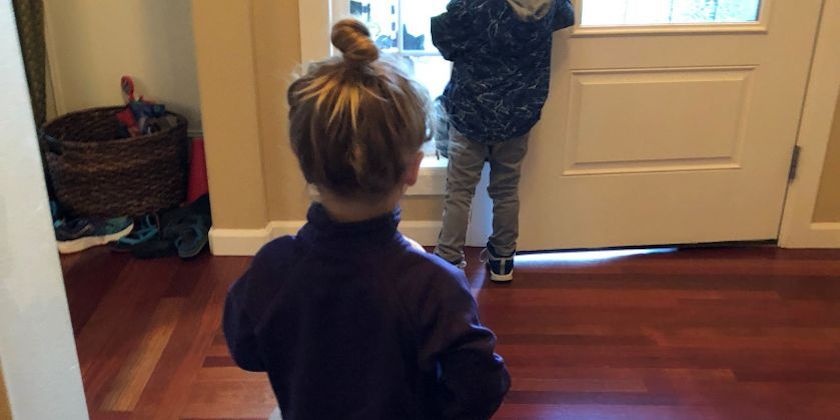When Your Babies Aren't Babies Anymore

This last week, my four-year-old son started his second year of preschool, played in his first outdoor soccer game, started playing flag football, and said “actually, mom . . .” to correct something I said. (He was, in fact, correct.) In the same amount of time, my two-year-old daughter has turned into a total meltdown nightmare from sunup to sundown (a phase we hope will pass soon and one I hope she hides while in her first couple weeks of preschool . . .).
Every once in a while, I’m aggressively reminded that my sweet, little babies will not always be my sweet, little babies. And, let’s be honest, I don’t want them to be . . . I want them to be normal, independent adults one day. But . . . sometimes I find it impossible to take in everything while also preparing them for whatever is coming their way in life.
This is a common conversation I have with my clients in estate planning meetings. A few questions that all parents will appreciate:
“My kid is 6 months old . . . how do I know if she’ll be good at managing money at 18?”
“What if my kids waste all my hard-earned money on crap?”
“Can I make sure my kids work hard and earn money and not just rely on what I leave to them?”
“What if my kid becomes disabled or has a drug addiction?”
“What if my kid marries someone I hate?”
Unfortunately, I can’t tell you whether your kid is going to be awesome at managing money, whether they’ll waste their entire inheritance from you, marry a crappy person, or what kind of person they’ll be. However, given my experience in dealing with the intersection of families, money, and death, I can tell you a few things that will help guide this discussion:
- Most kids at 18, despite their “adult” status, are not good at managing money. The parents who think they are in the special boat of “I raised a money management prodigy”, are usually wrong.
I find it is best to regulate inheritances, whether through use of a trust or a special type of bank account (called a Uniform Transfers to Minors Act account) until the kid is at least 25 years old. This allows them access to the money, for certain things and through certain “gatekeepers” (i.e., a trustee or custodian) until that age. A trust should be created through an attorney but Orbit Wills addresses the option to create a UTMA account for a beneficiary.
2. Kids will waste money. Even 60-year-old kids will waste money. We can’t protect kids from themselves forever. We’ve all wasted money. (Like, every time you go to Target.) Sometimes we have to let go and let the kids figure it out. There is a balance here – Parenting 101, right?
3. If you have a larger estate, it is very important to consider how an inheritance from your estate will affect your children. Will they work continue to work hard? Will they finish school? Will they get a good job? These things should be considered in how you divvy out your money to your kids when you die or, over several years after you die.
4. There are some very helpful resources available to an executor when dealing with a beneficiary who is either disabled or has a drug addiction. If one of your intended beneficiaries has a drug addiction or disability, you may benefit from coming in to discuss those issues with me (or any estate planning lawyer) directly. However, the documents provided via Orbit Wills incorporate the possibility that these things might happen.
5. In Washington, a daughter-in-law or son-in-law has no legal rights to your estate, meaning your kids receive their inheritance as separate property. If they decide to commingle it with their spouse, that is up to them. You can regulate the money you give to a kid to make sure their spouse never gets it, but that is a rather involved process that requires setting up a trust, etc. Many factors should be considered, including the length and history of their relationship, their estate planning, if done, and how this type of setup would affect their relationship. I’ve had several clients ask if they can give money to a kid on the condition that they get divorced from their spouse. (Pro tip: that’s against public policy and frowned upon.) Depending on the circumstances, I generally defer to giving the kid more control and letting the parents regulate less. But, I can be convinced otherwise. In short, this is a conversation you should have with your lawyer.
Kids will grow up. We don’t know what they’re going to be like. However, we can make a few predictions, which will allow you to get a good estate plan in place that will address various possibilities and protect your estate for the best interests of your children. Without a good estate plan in place, it can cost a lot in attorneys’ fees to get the money to your kiddos in the best way possible.
And, believe me, time is flyin.’ There is nothing like watching your children grow to understand the passage of time. Do them a favor and get a good, simple estate plan done so they can avoid paying lawyers to figure it out later. And so you know you did good by them.
Published 09/11/2018.

